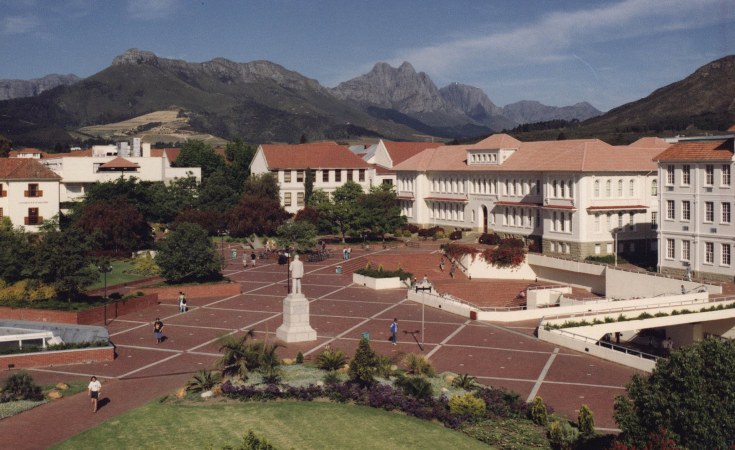The "fall of Afrikaans and the rise of English" at Stellenbosch University (SU) are an over-simplification of the language implementation planned at Maties, the institution said on Monday.
"Afrikaans will not be diluted as a result of the expansion of the English offering, and students who prefer to study in English will be supported to do so," said SU spokesperson Susan van der Merwe in a statement.
She said the fact that the university's language policy cannot be changed before the end of 2015 due to statutory directives should not be seen as an instrument to disadvantage English-speaking students.
"This acceleration does not require changes to the current language policy, as expanding both the Afrikaans and the English offering is aligned with the policy which was approved in November 2014. Initially the objective was to have a 75% offering in both English and Afrikaans by 2020, but this year has shown that the interests of our students necessitate a drastic acceleration of improved language implementation mechanisms," she said.
"The statement [issued last week] by the university management team has been issued as a discussion document to indicate their support for measures to improve the learning experience for students who do not have an academic literacy in Afrikaans.
"Management's statement is not a policy document. The Statute of the University determines that only Council can change the language policy after a process of consultation and with concurrence of Senate.
"The fact that the language policy cannot be changed before the end of 2015 does not mean that the implementation measures cannot proceed. Management ensures that the language plan is aligned with the language policy, and is responsible for its implementation. It is a management prerogative to expand on the approved minimum offering."
She said the announcement of the language implementation at SU by the Rector's Management Team (RMT) last week was met with wide-spread and diverse reaction.
Parallel-medium classes
Van der Merwe clarified that students would be able to study in both English and Afrikaans at the university next year, "but with priority given to implementing additional support mechanisms to ensure that students are not excluded as a result of Afrikaans".
"The objective of the accelerated implementation of the language plan, with a specific focus on parallel-medium teaching, is to ensure that no student is excluded from a clear understanding of the academic offering due to language.
"This will entail making available with immediate effect from 2016 more parallel-medium classes - separate Afrikaans and English classes - and other support mechanisms that will ensure that no student is excluded for learning and teaching because of Afrikaans or English."
Meanwhile, the Department of Higher Education and Training has hailed the planned amendments to the university's language policy as "a progressive step towards ensuring that the doors of the university are open to all students who qualify for admission and that the university's resources cater for students from a range of cultural backgrounds".
"This policy change will have a profound effect on transformation at Stellenbosch University and is a welcome step into the future," said department spokesperson Khaye Nkwanyana in a statement.
"As recent student protests have exposed, many black students experienced the language policy at Stellenbosch University as a tool for excluding them. This is a right step towards stopping exclusionary practices and changing attitudes against historically disadvantaged groups.
"Although Afrikaans is the main language spoken in the Stellenbosch area and one of the official languages in the country, the university is a national institution, and attracts students from across the country. The change to the language policy will improve the standing of Stellenbosch University as a valued national asset, inclusive of all South Africans."
Source: News24


